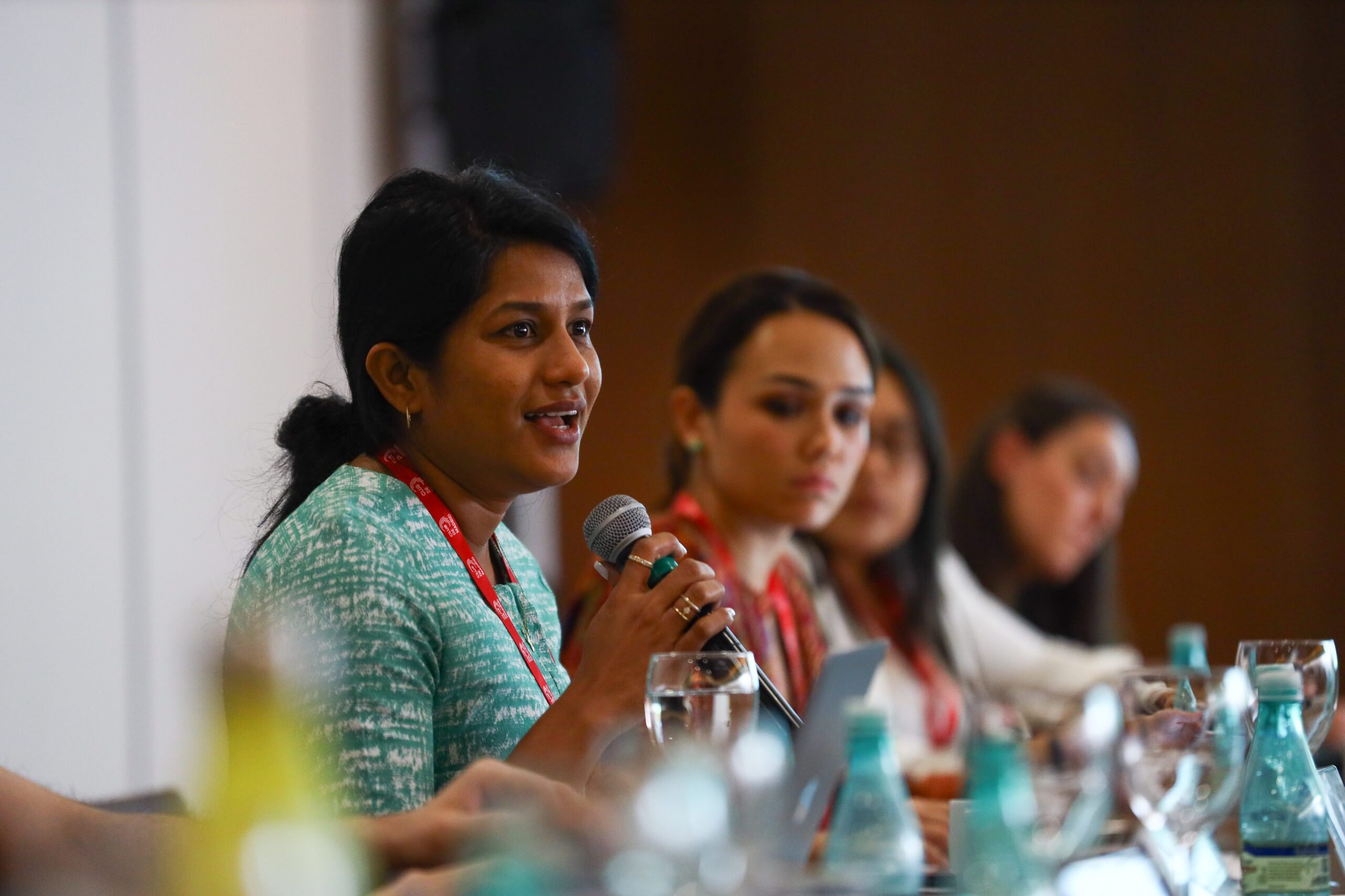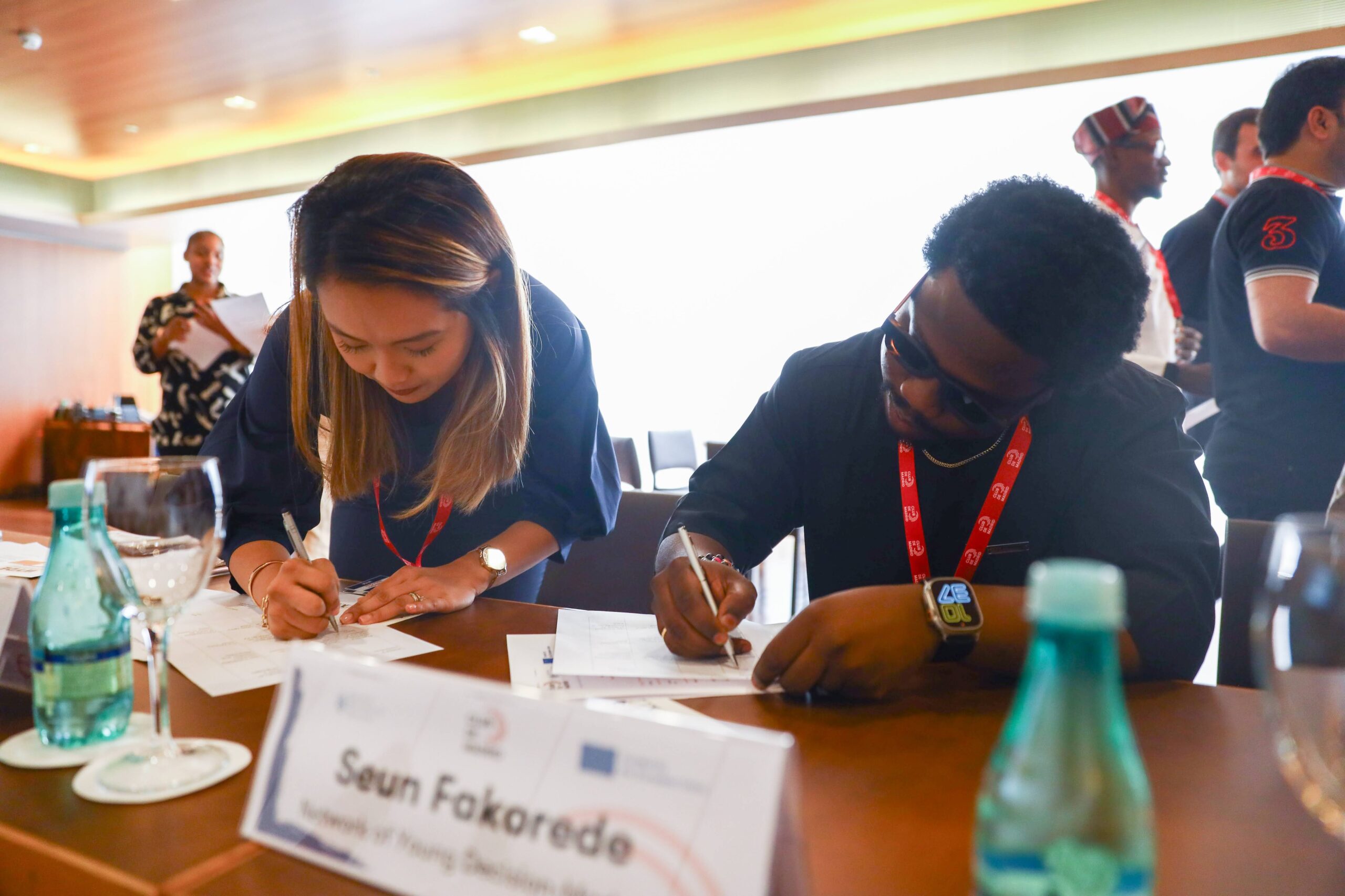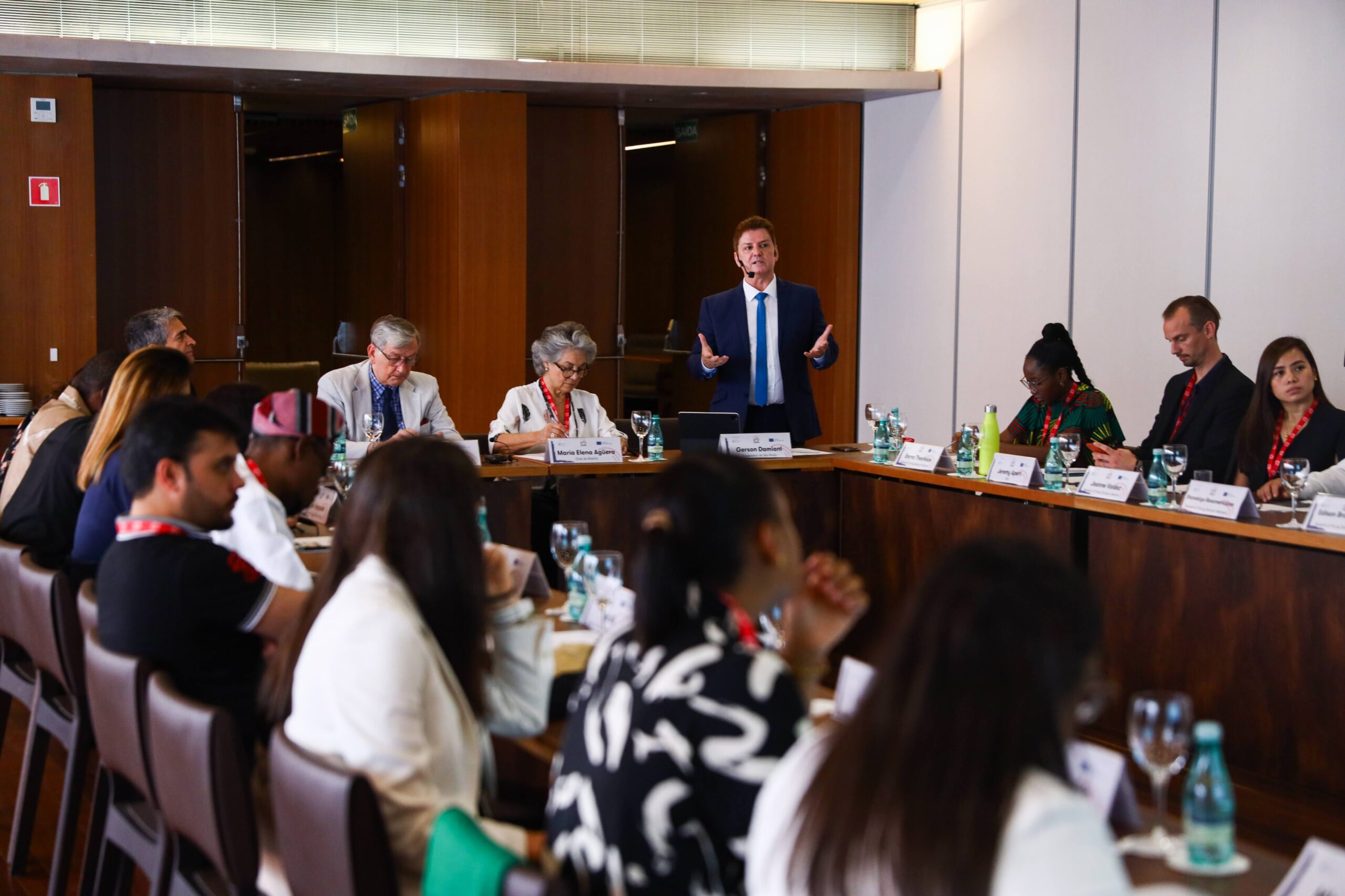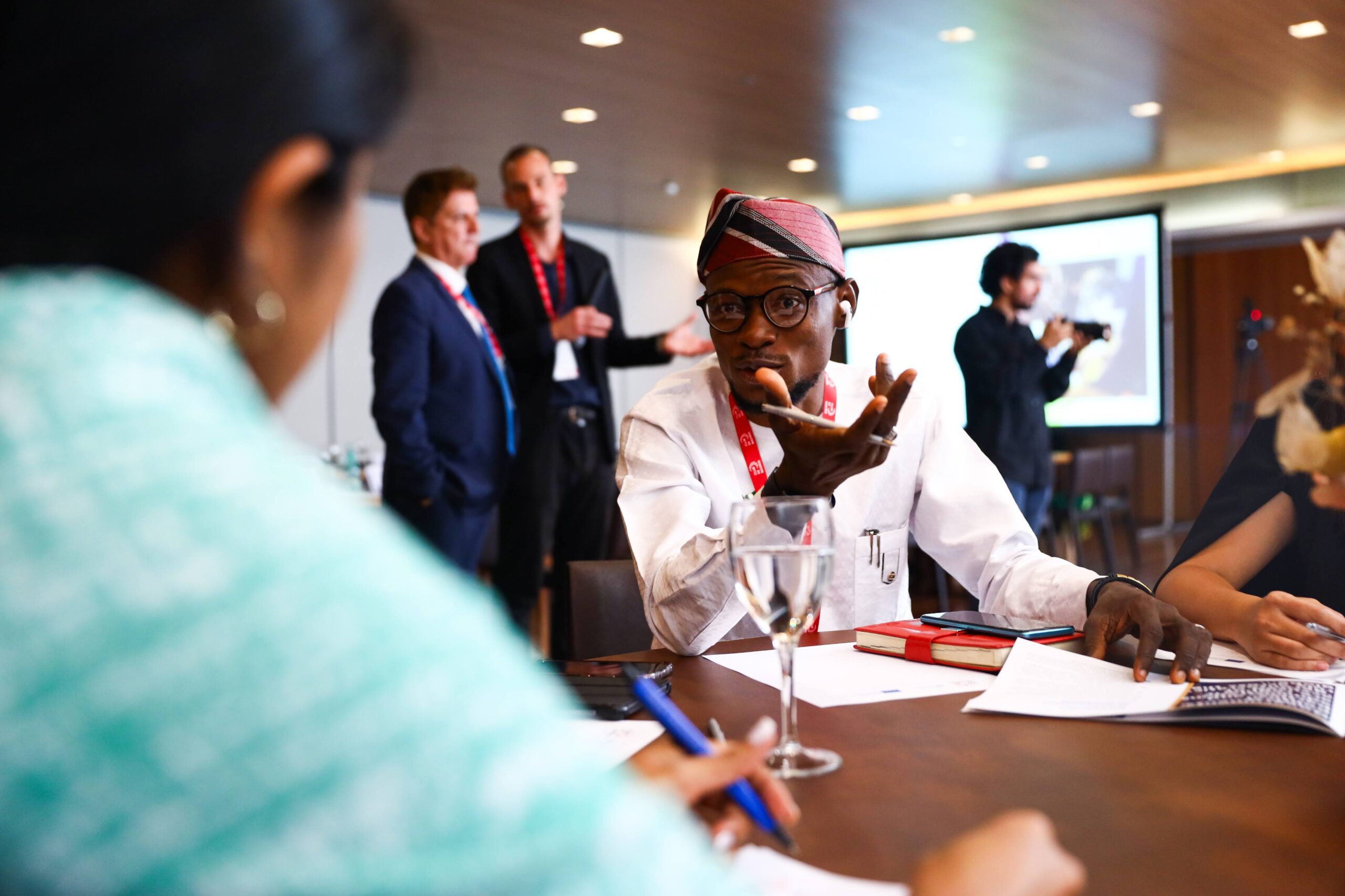The Project
Background
Around 25% of the world’s single and lower houses of parliament have no MPs aged under 30, and 73% of the world’s upper houses of parliament have no MPs aged under 30. While the share of young parliamentarians has improved across all age categories in recent years, the rate of increase has been too slow.
Youth participation in politics and decision-making has been a growing concern worldwide. Many young people have become disenchanted with politics and disengaged from the democratic process, resulting in a lack of representation of this vital demographic. A fundamental principle of democracy is that political systems should mirror society as a whole and represent the desires and best interests of all citizens. The Inter-Parliamentary Union’s 2021 Report on Youth Participation in National Parliaments reports a sizable deficit in the political representation of young people worldwide, with young people under 30 making up just over 2.6% of the world’s MPs. Around 25% of the world’s single and lower houses of parliament have no MPs aged under 30, and 73% of the world’s upper houses of parliament have no MPs aged under 30. While the share of young parliamentarians has improved across all age categories in recent years, the rate of increase has been too slow.

More generally, politicians are poorly suited to understand and tackle young people’s priority issues like education, not only because they themselves are not likely to be young, but also because they often come from elitist backgrounds and are thus far removed from the average young person’s experiences and struggles. As a result, voter turnout among youth is consistently lower than in older age groups, and if young people engage in politics, they more typically do so through informal channels including civic activism and protest. This type of informal engagement is nonetheless key to fostering active citizenship among youth and needs to translate into inclusive participation in democratic processes along with a simultaneous effort to remove barriers to participation.
Voter turnout among youth is consistently lower than in older age groups, and if young people engage in politics, they more typically do so through informal channels including civic activism and protest.

One world region, in particular, is identified as especially crucial for the political participation and leadership of young people: Sub-Saharan Africa. Being home to all of the top 10 youngest countries in the world, its “gerontocratic” political systems often alienate young people, as policies formulated by older decision-makers rarely reflect their aspirations and priorities.
Now is the time to think for the long term, to deliver more for young people and succeeding generations and to be better prepared for the challenges ahead.
Project
This network of young decision-makers that will offer them the opportunity to meet with like-minded peers, receive direct support from older civil servants or elected officials and influence the global agenda through concerted and informed action.
One of the challenges that young political leaders have is that there is an absence of international networks of young decision-makers or of spaces where they can jointly address the challenges they face. This Network of Young Decision-Makers aims to fill this gap by providing a unique platform for young leaders to connect, collaborate, and share ideas, best practices and policy recommendations on issues of global concern.

Club de Madrid will lead work in the Project Cluster 5 focused on Young Decision-Makers, who are people active in politics that have reached positions of influence from which they can advocate for greater youth political participation. Be it as ministers or as state secretaries, city majors or Members of Parliament, or commissioned public officials, young decision-makers often find themselves in difficult situations. While they may be willing to promote youth empowerment and make democratic institutions more inclusive, they also need to overcome the “stigma” of youth, which in the political milieu is associated with impulsiveness and lack of experience. Adding to all that, there is an absence of international networks of decision-makers or spaces where they can address together the challenges they have. To overcome this conflict and in terms of openly advocating for youth participation, CdM has created this network of young decision-makers that will offer them the opportunity to meet with like-minded peers, receive direct support from older civil servants or elected officials and influence the global agenda through concerted and informed action.
This project offers a platform for discussing the most effective policy response to support stronger democracies, and the outcome of the dialogues is the perfect setting to explore the political feasibility of potential policy solutions to specific youth issues or to other general issues seen from a youth perspective,

Through the conception, design and implementation of Policy Labs, the cluster led by the Club de Madrid, will broker a series of policy discussions on key topics for the global youth. These policy dialogues offer a platform for discussing the most effective policy response to support stronger democracies, and the outcome of the dialogues is applied in global advocacy for maximum impact and is the perfect setting to explore the political feasibility of potential policy solutions to specific youth issues or to other general issues seen from a youth perspective, so that young decision-makers can better grasp the implications of different policy proposals.
Moreover, the young decision-makers will be able to count on the direct support of the Club de Madrid Members, and veteran politicians that have been at the helm of their respective political systems and thus know the intricacies of policy-making. Club de Madrid is willing to work together with young decision-makers and support them in using their political capital to improve youth participation and contribute to developing a stronger and more inclusive youth agenda at the global, regional and national level, maximizing the value of young political leaders.
About WYDE Civic Engagement
CdM will be acting as co-applicant in the WYDE Civic Engagement, the Youth Participation in Public Affairs programme of the EU’s Women and Youth in Democracy Initiative which aims to improve the enfranchisement, empowerment, and inclusion of youth in all levels of democratic participation at the national, regional and global scales.
The project aims to improve the enfranchisement, empowerment, and inclusion of youth from the Global South at all levels of democratic participation at the national, regional and international scales.
This project is led by the European Partnership for Democracy (EPD) and funded by the European Commission. To learn more about WYDE Civic Engagement visit the project page on the EPD website.
